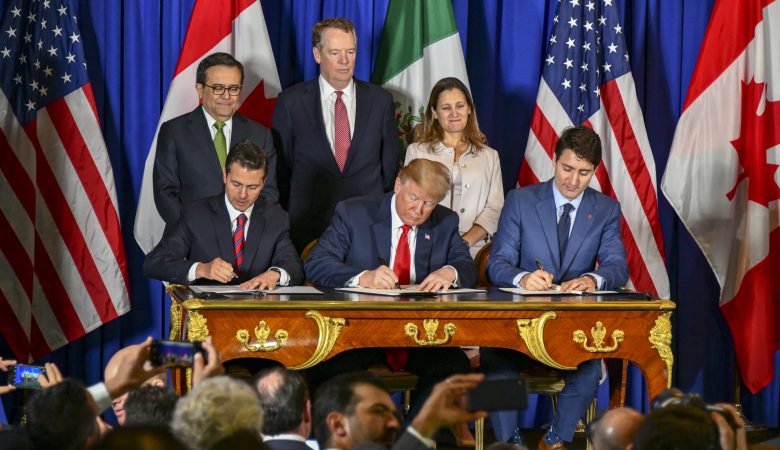At G20, U.S. Leads the Way by Protecting IP in USMCA Trade Agreement
All other countries must now catch up.
The historic signing of the landmark U.S., Mexico, and Canada trade agreement took place in Buenos Ares, Argentina in front of other G20 Leaders.
Among the major accomplishments of the USMCA are several intellectual property protections that promise to propel the region forward by incentivizing long-term capital-intensive research and development.
Notable achievements in the Agreement include:
- Enforcement authorities will be able to stop suspected counterfeit goods at all areas of entry and exit
- Extension of the minimum copyright term to life of the author plus 70 years
- Protection of biologics test data up to 10 years
- Real protection against trade secret theft from state-owned entities, during litigation and from wrongful government disclosure.
These achievements were only possible because of U.S. leadership. Late last year, four G20 countries, including Canada and Mexico, opted to suspend entirely the intellectual property chapter in the Trans-Pacific Partnership agreement and renamed it the Comprehensive and Progressive Trans-Pacific Partnership. Sadly, by not including intellectual property it is neither comprehensive or progressive.
The reality is that the majority of trade in North America is IP-intensive trade. In the United States IP-intensive industries employ more than 45 million hard-working people that earn wage premiums on average a 30 percent greater when compared to their non-IP counterparts. The industry contributes more than 6 trillion in value added to GDP and 900 billion in exports of goods and services.
Likewise, in Canada Small and Medium Enterprises are 60 percent more likely to experience high-growth and 4 times more likely to export when they own intellectual property. IP-intensive industries contribute more than $330 billion to Canada’s GDP and employ 2 million workers directly. The new USMCA, by outlining clearer property rights and elevating enforcement will allow Canadians greater control of these vital assets—certainly a “good deal for Canada”.
Competition in the intellectual property space is about more than numbers. IP protections are human rights- securing the right of innovators to own their work and control how it is used. When this ownership-incentive is secure all society can partake of greater access to breakthrough technologies and new medicines that save lives.
Image: Flikr

